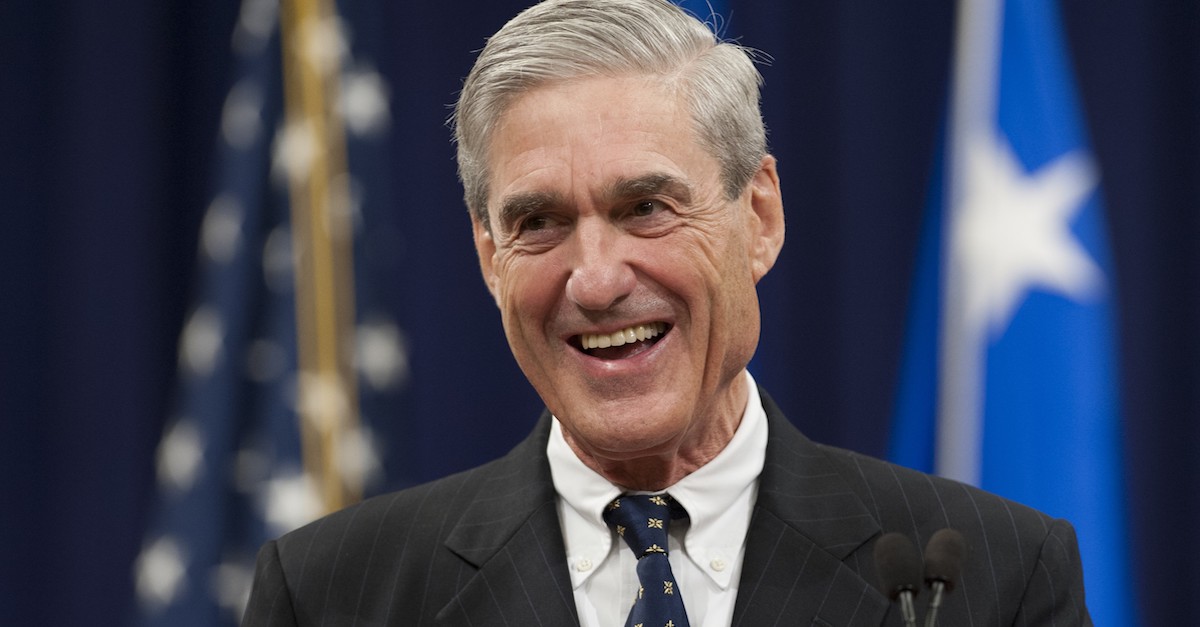
Top Democrats are seizing on acting Attorney General Matthew Whitaker‘s past “hostile statements” about Special Counsel Robert Mueller‘s investigation to say that he should not be allowed to supervise the probe. Actually, they took it a step further than that, saying that these statements and “troubling conflicts of interest” require Whitaker’s “immediate recusal.”
The letter to the Department of Justice (DOJ) was signed by Rep. Nancy Pelosi (D-California), Sen. Chuck Schumer (D-New York), Rep. Jerry Nadler (D-New York), Sen. Dianne Feinstein (D-California), Rep. Adam Schiff (D-California), Rep. Mark Warner (D-Virginia) and Rep. Elijah Cummings (D-Maryland).
They demanded that the DOJ “immediately notify us in writing regarding whether you, or any other ethics officials at the Justice Department, have advised Mr. Whitaker to recuse from supervision of the Special Counsel investigation, and the basis for that recommendation.”
Whitaker, for his part, has given no indication that he has any plans of recusing himself from the investigation. Democrats maintain that Whitaker’s past comments on how the Mueller probe was “going too far,” and his description of the probe as a “mere witch hunt,” are disqualifying.
“We are writing to you in your capacity as the Justice Department’s Designated Agency Ethics Official regarding the supervision of Special Counsel Robert Mueller by Mr. Matt Whitaker, the newly appointed Acting Attorney General,” the letter began. “There are serious ethical considerations that require Mr. Whitaker’s immediate recusal from any involvement with the Special Counsel investigation of the Russian government’s efforts to interfere in the 2016 presidential election.”
Democrats said that Whitaker’s disagreement with fired FBI Director James Comey‘s assessment that “no reasonable prosecutor” would charge Hillary Clinton over use of her private email server was another indication he would not be impartial as acting AG. Democrats also said Whitaker’s connection to Sam Clovis, a Mueller grand jury witness against former Trump campaign advisor George Papadopoulos, was among the “troubling conflicts of interest” that should prevent Whitaker from overseeing the probe.
Whitaker served as a campaign chairman for Clovis back in 2014, when he ran for Iowa state treasurer.
Democrats argued that Whitaker should recuse himself as former AG Jeff Sessions did.
“As you know, following advice from career Department ethics officials, Attorney General Sessions recused from the Special Counsel investigation given his senior role on the Trump campaign and a series of undisclosed contacts with Russian government officials,” the letter continued.
The difference here is clear from that statement itself. Sessions, indeed, worked in a senior advisory role for the Trump campaign, one entity that is still under investigation by Mueller.
Sessions said the following to justify his recusal: “That regulation states, in effect, that department employees should not participate in investigations of a campaign if they have served as a campaign advisor.” Whitaker was not a Trump campaign advisor — he was a campaign advisor for someone else years ago, someone who also happens to be a Mueller witness.
Democratic lawmakers’ argument seems to boil down to: the optics are bad, really bad.
“The official supervising the Special Counsel investigation must be — in both fact and appearance — independent and impartial. Regrettably, Mr. Whitaker’s statements indicate a clear bias against the investigation that would cause a reasonable person to question his impartiality,” they said. “Allowing a vocal opponent of the investigation to oversee it will severely undermine public confidence in the Justice Department’s work on this critically important matter. Mr. Whitaker’s relationship with Mr. Clovis, who is a grand jury witness in the Special Counsel investigation, as well as Mr. Whitaker’s other entanglements, raise additional concerns about his ability to supervise the investigation independently and impartially.”
At least one major legal ethics scholar has already disputed that Whitaker would need to recuse himself from the probe because of bad optics.
NYU Law Professor Stephen Gillers previously told Law&Crime that objections to Whitaker are “compelling,” but there is ultimately “no legal ethics issue here.”
“Objections to Whitaker because he seems already to have made up his mind on the Mueller investigation, even before he can know all that Mueller knows, are compelling,” Gillers said. “But there is no legal ethics issue here. As a policy maker, his job is to have a point of view on the issues, just as Rosenstein has.”
[Image via Saul Loeb/AFP/Getty Images]